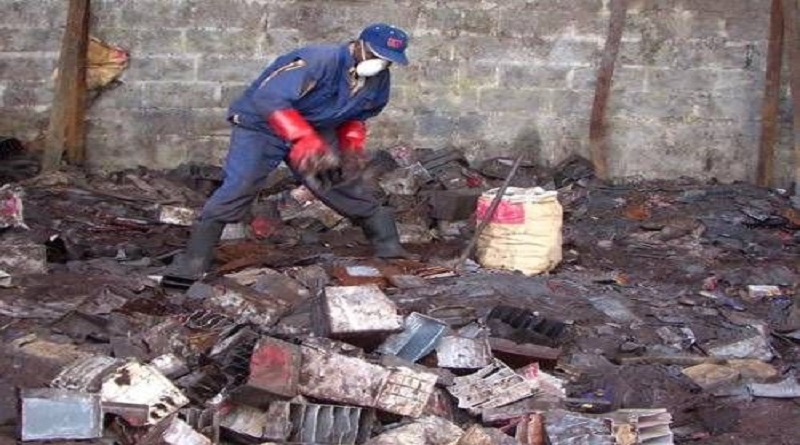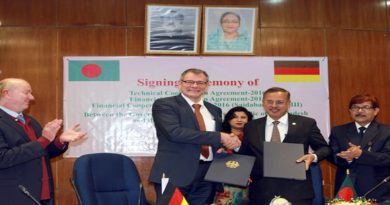Battery recycling plants in Nigeria, six other African nations show lead contamination- Study
A recent study conducted in Nigeria and six other African countries including Cameroon, Ghana, Kenya, Mozambique, Tanzania, and Tunisia found extensive lead contamination around lead battery recycling plants as the authors of the study called on governments to ensure that plant operators set aside funds for facility closures to ensure that lead soil contamination is no left behind.
The international study revealed that the contamination levels in soil ranged up to 14% lead with average concentrations of 2% lead.
Lead battery recycling is a growing hazardous industry throughout Africa. In addition to vehicle applications, lead batteries are used to store solar and wind power, and are in demand for backup power for computers, cell phone towers, and home use. Lead pollution at these sites poses significant health risks to the public.
The study “Soil Contamination from Lead Battery Manufacturing and Recycling in Seven African Countries” published in the Journal Environmental Research, tested areas surrounding 16 authorized industrial facilities in Cameroon, Ghana, Kenya, Mozambique, Nigeria, Tanzania, and Tunisia.
In Nigeria, a non-governmental organisation, Sustainable Research and Action for Environmental Development ( SRADev Nigeria) collected and analysed a total of 21 soil samples from lead battery recycling factories sites in Lagos and Ogun states.
The collected samples were tested in EMSL Analytical, Inc, USA. It revealed that lead levels around lead battery recycling plants in Nigeria ranged up to 29,000parts per million (ppm) outside the facilities tested and 140,000ppm inside the facility tested. Fifteen (71%) of the samples were greater than 400 ppm or the USEPA limit for soil. Levels below 80 ppm are considered safe for children.
Executive Director, SRADev Nigeria, Leslie Adogame, said: “There are no industry specific regulations controlling the release of lead from these recycling plants or to protect workers and children in surrounding communities.”
Few countries in Africa have adequate regulations governing the operations and emissions from lead battery recycling. “Lead battery manufacturing and recycling are extremely hazardous industries and companies should be required to publicly disclose their air emissions on an annual basis,” Adogame added.
Programme Officer of SRADev Nigeria, Victor Fabunmi noted that “One of the facilities tested in Ota(Ogun state) is located within approximately 20 meters of a residential district with about 200 inhabitants”. At another facility in Ogijo (Ogun state), “waste water run-off from the factory is used to irrigate surrounding farmlands”.
Executive Director of Occupational Knowledge International, USA and the lead author of the study, Perry Gottesfeld, said “There is an immediate need to limit lead emissions from this industry and to test children’s exposure levels in nearby communities.” He added that many countries including Nigeria need to develop laboratory capacity to routinely test blood lead levels.
The authors of the study called on governments to ensure that plant operators set aside funds for facility closures to ensure that lead soil contamination is no left behind. One such site around a shuttered lead battery recycling plant in Mombasa Kenya that has never been remediated is responsible for poisoning hundreds of nearby residents since the plant was closed in 2009.
The United Nations Environment Assembly (UNEA) adopted a resolution during its meeting in 2017 calling on governments to do more to control hazardous lead emissions from lead battery recycling.
Sustainable Research and Action for Environmental Development (SRADev Nigeria) is a professional, non-governmental, non-profit think tank in environmental health research and development, advocacy and action organization. It seeks to be the voice for environmental development in Africa particularly, Nigeria, while acting as a catalyst, advocate, educator and facilitator to promote the wise use and sustainable development of the environment while OK International is a U.S. based NGO that works to build capacity in developing countries to identify, monitor, and mitigate environmental and occupational exposures to hazardous materials in order to protect public health and the environment. The organization seeks to address inequities in environmental standards between developed and developing countries.




